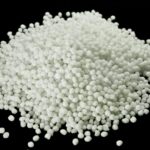The pharma machine manufacturing segment operates in a complex B2B environment where efficiency, productivity, and cost-effectiveness are considered a few of the most important output parameters. For pharmaceutical companies targeting this niche, a well-defined digital marketing strategy is essential. This note provides a detailed overview of the key deliverables within the pharma machine manufacturing sector, explores various digital marketing channels, and offers additional strategies to effectively reach and engage with this audience.
Understanding the Audience:
The pharmaceutical industry has distinct needs and concerns. To effectively market pharma solutions to this segment, a profound understanding of their pain points is crucial.
Key Pain Points:
- Maximizing Machine Uptime and Output:
- Frequent breakdowns and maintenance disrupt production schedules.
- Highlight solutions that improve machine reliability and optimize performance.
- Reducing Production Costs:
- Cost-effective solutions for cleaning, lubrication, and machine protection are essential.
- Promote products that contribute to overall cost savings.
- Maintaining Hygiene and Safety:
- Strict standards govern manufacturing environments.
- Emphasize the safety and hygiene benefits of pharma solutions.
- Complying with Regulations:
- Adhering to stringent regulations is mandatory.
- Promote solutions that ensure compliance with industry standards.
Digital Marketing Channels for the Pharma Machine Manufacturing brands:
- Content Marketing:
- Develop blog posts, case studies, and white papers addressing manufacturers’ pain points.
- Create downloadable eBooks and guides with valuable insights and best practices.
- Partner with industry publications for sponsored content opportunities.
- Website Optimization:
- Ensure a mobile-friendly website with relevant information for machine manufacturers.
- Include case studies, testimonials, and white papers showcasing successful applications.
- Optimize the website for relevant keywords to improve search engine ranking.
- Email Marketing:
- Build an email list of relevant contacts in the machine manufacturing industry.
- Send targeted email campaigns with valuable content, product updates, and industry news.
- Social Media Marketing:
- Be active on LinkedIn and industry-specific platforms.
- Share informative content, engage in discussions, and participate in relevant groups.
- Run targeted social media ads to reach decision-makers and professionals.
- Webinars and Online Events:
- Host webinars on topics like machine optimization, cost reduction, and regulatory compliance.
- Participate in industry-specific online events and conferences to showcase expertise.
- Video Marketing:
- Create engaging video content showcasing product demonstrations, customer testimonials, and industry insights.
- Utilize video platforms like YouTube and Vimeo to reach the target audience.
Additional Digital Marketing Strategies for Pharma Machine Manufacturers:
- Partner with Industry Influencers:
- Collaborate with respected bloggers, journalists, or engineers in the machine manufacturing industry.
- Run Targeted Online Advertising:
- Utilize platforms like Google Ads and LinkedIn Ads to reach decision-makers and influencers.
- Leverage Marketing Automation Tools:
- Streamline marketing efforts and personalize messaging across various channels.
- Track and Analyze Results:
- Continuously monitor campaign performance and adapt the strategy based on data insights.
Considerations:
- Regulations:
- Pharma marketing must comply with strict regulations.
- Ensure digital marketing materials are accurate, balanced, and objective.
- Data Privacy:
- Be transparent about how customer data is collected and used.
- Adhere to all data privacy regulations.
- Ethical Considerations:
- Maintain high ethical standards in marketing communications.
- Avoid making misleading or unsubstantiated claims.
PASTA Framework as pharma digital marketing strategy for the Pharma Machine Manufacturing Segment
The PASTA framework, focusing on Persona, Audience, Situation, and Task, offers a robust approach to designing digital marketing strategies in the complex landscape of the pharmaceutical manufacturing segment. This framework underscores the importance of understanding the unique needs, behaviors, and challenges within this industry. By incorporating personas, targeting the right audience, considering situational factors, and aligning tasks with objectives, pharmaceutical companies can develop more effective and personalized digital marketing campaigns.
1. Persona:
In the pharma manufacturing segment, understanding the key stakeholders is paramount. Develop detailed personas representing various individuals involved in the decision-making process, including production managers, compliance officers, and procurement specialists. Consider their roles, responsibilities, pain points, and aspirations. For example:
- Persona 1: Production Manager (e.g., Concerned with machine uptime and efficiency)
- Persona 2: Compliance Officer (e.g., Focused on regulatory adherence)
- Persona 3: Procurement Specialist (e.g., Interested in cost-effective solutions)
2. Audience:
Identify and segment the broader audience within the pharmaceutical manufacturing sector. Tailor marketing messages to address the specific concerns and preferences of each segment. For instance:
- Segment 1: Small to medium-sized manufacturers
- Segment 2: Large-scale production facilities
- Segment 3: Manufacturers focused on cost optimization
3. Situation:
Consider the situational factors that impact decision-making within the pharma manufacturing sector. This includes regulatory environments, market trends, and industry challenges. For instance:
- Regulatory Environment: Stay updated on current pharmaceutical regulations and ensure that marketing materials align with compliance standards.
- Market Trends: Monitor trends related to machine efficiency, cost-effectiveness, and safety protocols.
- Industry Challenges: Address common challenges such as compliance with GMP (Good Manufacturing Practice) standards and maintaining a sterile manufacturing environment.
4. Task:
Align marketing tasks with the overall objectives of reaching and engaging the target audience. Define specific tasks for each persona, segment, and situational factor. For example:
- Task 1: Develop content highlighting the reliability features of pharmaceutical machinery for Production Managers.
- Task 2: Create targeted ads promoting cost-effective solutions for Procurement Specialists.
- Task 3: Host webinars addressing compliance challenges for Compliance Officers.
Implementation Strategies for Digital Marketing in Pharma:
- Content Development:
- Create informative content tailored to each persona, addressing their specific concerns.
- Develop case studies showcasing successful implementations in various manufacturing settings.
- Segmented Targeting:
- Utilize digital advertising to target different audience segments with customized messages.
- Implement email marketing campaigns that resonate with the priorities of each manufacturing segment.
- Situational Messaging:
- Ensure that marketing messages align with current regulatory standards and emphasize compliance.
- Stay agile in adapting marketing materials to address emerging trends and industry challenges.
- Task-oriented Campaigns:
- Execute task-specific campaigns, such as webinars, whitepapers, and product demonstrations, aligning with each persona’s needs.
- Leverage social media platforms to engage with the audience and encourage participation in relevant tasks.
Monitoring and Evaluation:
- Metrics and KPIs:
- Track engagement metrics for each persona, segment, and task.
- Monitor conversion rates, click-through rates, and audience interaction in webinars and events.
- Feedback Mechanism:
- Establish channels for feedback from the audience, incorporating their insights into ongoing campaigns.
- Conduct surveys and interviews to gauge the effectiveness of the marketing strategy.
A successful digital marketing strategy for pharmaceutical solutions in the machine manufacturing segment requires a deep understanding of the audience’s unique needs. By utilizing a combination of content marketing, website optimization, email marketing, social media marketing, webinars, and video marketing, pharma companies can effectively reach decision-makers and influencers in this complex B2B environment. Additionally, partnering with industry influencers, running targeted online advertising, leveraging marketing automation tools, and tracking campaign performance are essential for long-term success. Compliance with regulations, data privacy, and ethical considerations should be prioritized to build trust and credibility within the industry. In the competitive landscape of pharma digital marketing, providing valuable information and fostering a relationship of trust is key to sustained success in the machine manufacturing segment.






